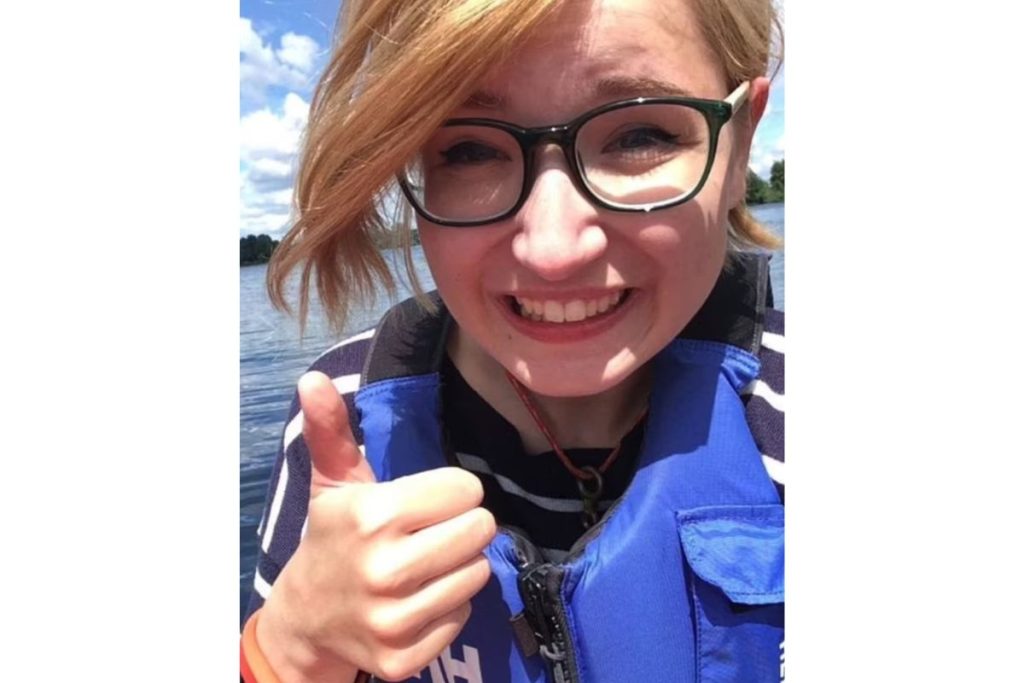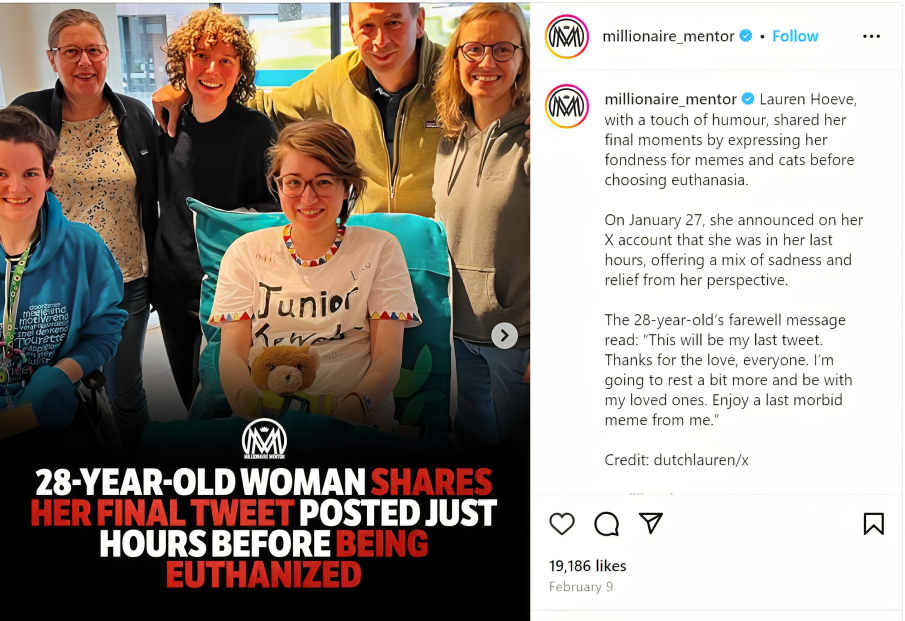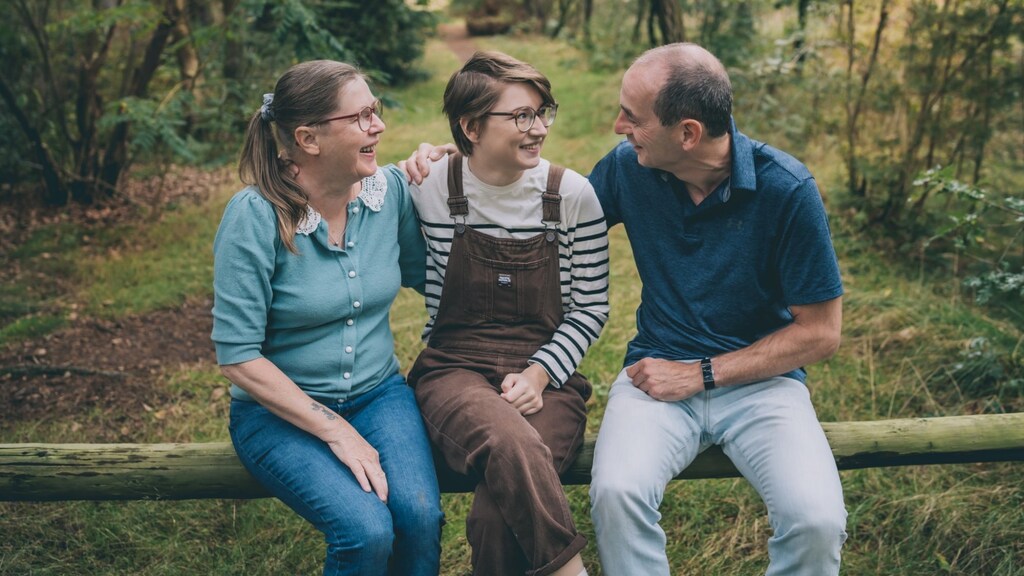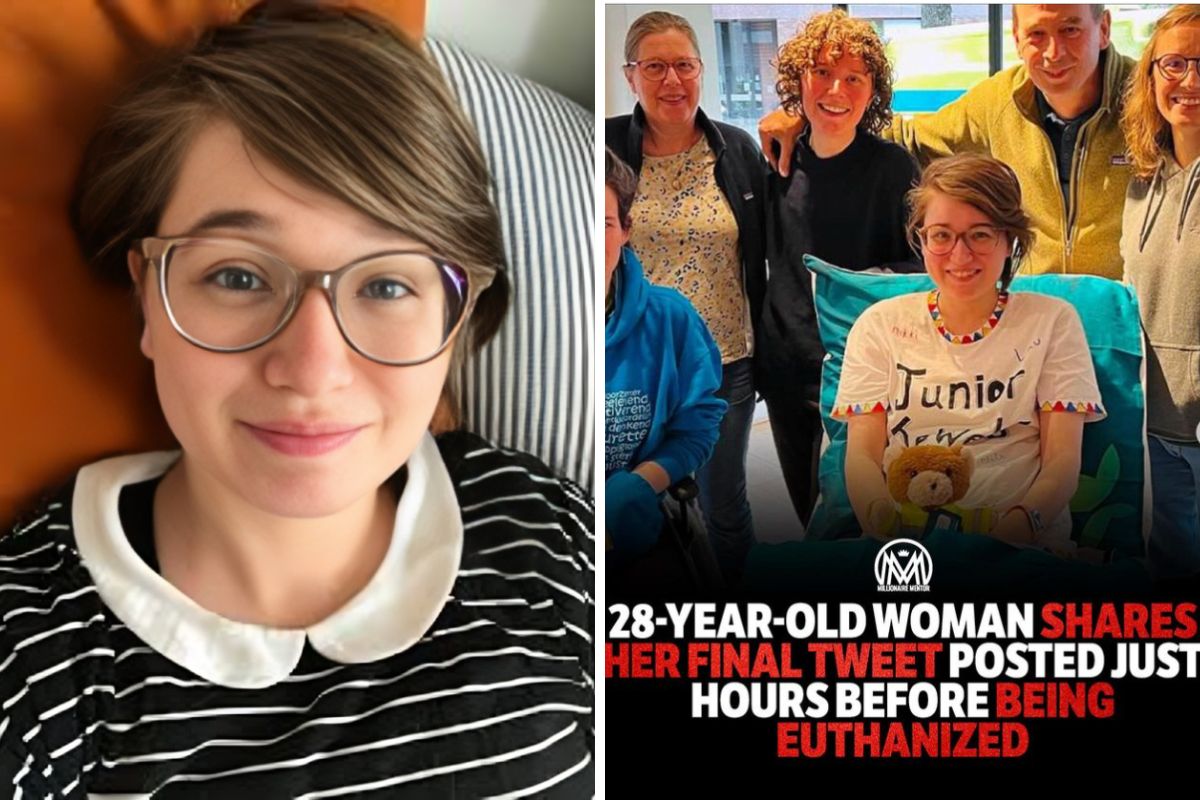All You Need to know about Lauren Hoeve’s Assisted Death and Its Implications
A 28-year-old Dutch woman dies by euthanasia after documenting her ordeal with severe chronic fatigue syndrome.
My Last Day Will Be Saturday” She made this announcement before passing with her loved ones by her side, thanking everyone for their support during her trying times.

She said “I chose to make the date and time public because you have all been so excited for this moment with me. I know from experience how supportive it can be to know when it is happening so that you can reflect on it for a moment or light a candle if you wish.”
However, her case has brought significant attention to people choosing euthanasia and controversial discussions about the right to die with dignity. Let’s work you through her saddening yet heroic death, people’s perceptions of assisted death, government and stance and many more.
Lauren Hoeve’s Struggle

Lauren’s illness was not a case of cancer or any other life-threatening diseases. She was diagnosed with myalgic encephalomyelitis (ME), popularly known as CFS (chronic fatigue syndrome). She also has ADHD and her daily life was a constant battle against these debilitating conditions, many of it being psychological.
Despite various treatments and therapies, Lauren’s symptoms persisted, leaving her in a state of perpetual exhaustion and mental fog. Her blog provided an intimate look into her struggles, particularly with “brain fog,” In one of her posts, Lauren wrote:
Hand on heart, had anyone suggested I be helped along with a pill, I would not have hesitated. But there was no question of that.
Instead, I was given anti-depressants and with therapy the anxiety damped down and my mood lifted. But the deep, indelible traces of bleak hopelessness are laid down forever in my memory.
I am certain any clinician would immediately have recognised my condition as temporary and eminently treatable. But mental illness can be fiendishly hard to diagnose – and in the context of assisted dying, legal definitions are non-negotiable.
Assisted Death and Lauren’s Decision

After years of battling her conditions, Lauren decided to pursue assisted death. Assisted dying, also known as euthanasia, is a practice where individuals with terminal or unbearable chronic illnesses can choose to end their lives with medical assistance. This option is legally available in several countries under strict conditions. Netherland is one of those countries, however, there have been a lot of issues about Lauren’s applications making it.
After expressing her desire for euthanasia to her GP, he informed her that her case is complicated as she is not only suffering from ADHD, autism but also mental problems. She however, joined the waiting list in order to see the euthanasia specialist. Covid 19 hit and that extended her waiting period. Her case was later dismissed after she was tested “mentally competent’.
Lauren’s decision was met with mixed reactions. Some saw it as a courageous choice to end her suffering on her own terms, while others viewed it as a tragic result of inadequate support and treatment options for chronic illnesses. Her mom ehonhas initially lost a son expressed her grief associated with seeing her daughter dying right in her eyes. She said they bhave done everything possible to find a way out but all proves abortive. She concluded that she no longer have to fear loosing her children as she knows where they are now.
Lauren’s story highlighted the desperate need for better understanding and management of conditions like ME and ADHD, as well as the ethical and moral considerations surrounding assisted dying.
What Does The Public Has To Say About Assisted Death?

The public have varying opinions about assisted dying. Advocates argue that individuals suffering from unbearable pain and chronic conditions should have the right to choose a dignified death. They emphasize the importance of personal autonomy and the compassionate aspect of ending unnecessary suffering.
Opponents, however, raise concerns about the potential for abuse, the moral implications of ending a life, and the possibility that vulnerable individuals might feel pressured into choosing death due to inadequate support systems. They stress the need for improving palliative care and mental health services as alternatives to assisted dying. In the UK for instance, the fight for legalizing assisted dying has been ongoing for years, with several high-profile cases bringing the issue to the forefront. Advocates, including organizations like Dignity in Dying, argue for legislation that allows terminally ill adults to choose assisted death under strict safeguards. They highlight cases where individuals faced prolonged suffering due to the lack of legal options. Despite these efforts, assisted dying remains illegal in the UK. Many, including some medical professionals and religious groups, argue that legalizing the practice might lead to a stage where the value of life is undermined.
However, Canada has taken significant steps towards promoting assisted dying, particularly with the introduction of Medical Assistance in Dying (MAID) legislation in 2016. MAID allows eligible Canadian adults to request and receive assistance in dying. Eligibility criteria include having a grievous and irremediable medical condition, being in an advanced state of irreversible decline, and experiencing unbearable suffering.
What’s Next?
Lauren Hoeve’s case and the broader discussion on assisted dying raise important ethical and societal questions. How do we ensure that those with chronic conditions receive adequate support and treatment? How do we protect vulnerable individuals while respecting personal autonomy? These questions are crucial as more countries consider legalizing assisted dying.
Lauren’s blog, particularly her poignant reflections on “brain fog,” provides a powerful reminder of the lived experiences behind these debates. Her words underscore the need for empathy and understanding in discussions about chronic illness and assisted dying.











